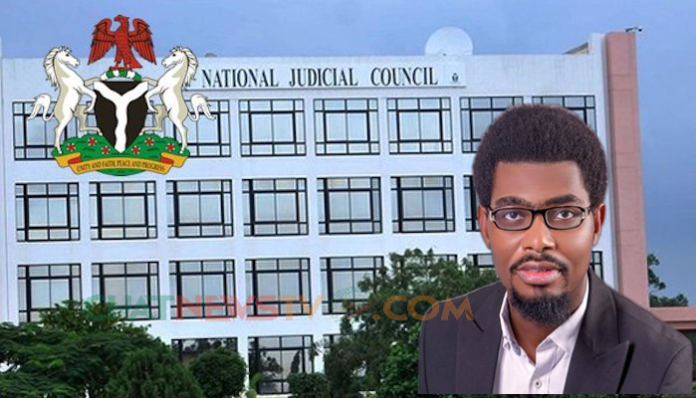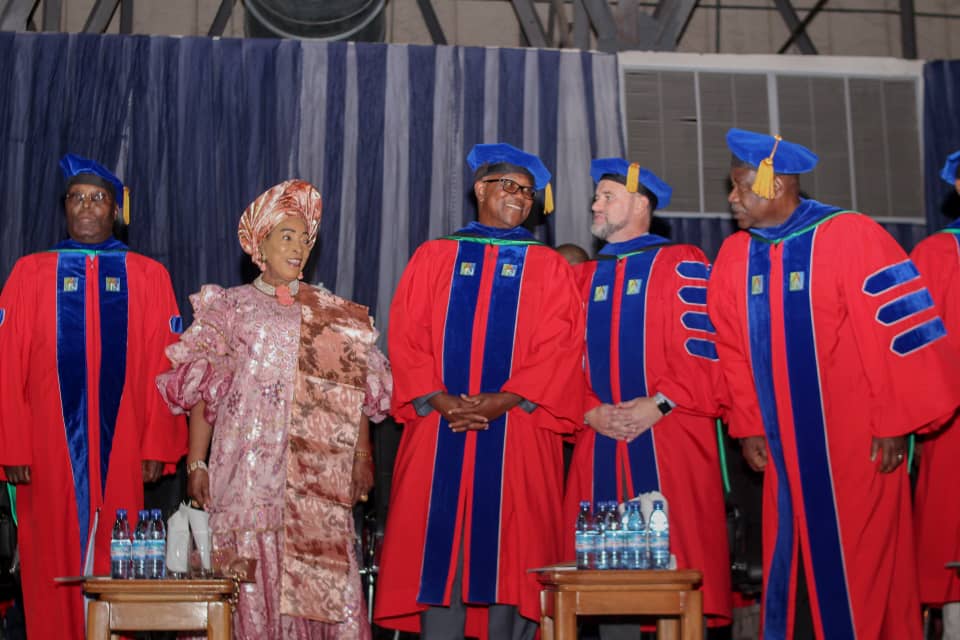On 20 October 2024, I was gloomy. It was four years since the #EndSARS protests by Nigerian Youths against police brutality and the bloody reprisals that followed in its wake. I scrolled my phone with the intention of exiting the #EndSARS sorrows. Instead, I scrolled unto premium tears.
On Premium Times, I stumbled on an article headlined: “Theresa Chikeka: The retired judge who is chief judge of Imo State? By Chidi Anselm Odinkalu”. I take anything written by Prof Odinkalu seriously because he bears a torch in the dark times we find ourselves in this country. By his flint we hope to find guidance to the paths that could make life liveable for those coming after us. The opening phrases of the article read as follows:
“The judicial career of Francis Chukwuma Abosi was supposed to last only seven years. In the event, he did 12 and may well have reached 20 years if events had not intervened. In his 12th year as a judge in April 2020, while serving as the Acting President of the Customary Court of Appeal of Imo State in South-East Nigeria, the National Judicial Council (NJC) mercifully ended it all.”
The story was not about Francis Abosi though. It was about Theresa Eberechukwu Chikeka who was appointed a judge of the High Court of Imo State on the same day as Abosi in 2008. Theresa Chikeka schooled, did Youth Service, and worked on the basis that she was born on 27 October 1956 and should have retired at 65 in October 2021. Instead, she changed her year of birth from 1956 to 1958, thereby making her eligible to retire in 2023 instead of 2021. On 28 June 2022, Imo State House of Assembly confirmed her as Chief Judge, more than eight months after she should have retired.
Also Read: Theresa Chikeka: Retired Judge As Chief Judge of Imo State By Professor Chidi Odinkalu
On 18 November 2024, the National Judicial Council (NJC) recommended the sack of Chikeka for age falsification. Additionally, “the council found that Grand Khadi Mahdi of Yobe State had three different dates of birth – December 10, January 28, and July, all in 1959, while his actual date of birth is 1952. The council held that Babagana, the Grand Kadi of Yobe, committed an act of misconduct in violation of Rule 02908 (i) and (ii) of the Public Service Rules, 2021 and ought to have retired from service 12 years ago.”
I am scandalised to learn that falsification of age by judicial officers is this rampant. How many more retired judges remain in service of the judiciary? The judicial officer’s calling is to do justice and, in some instances, convict people who cheat the system, falsify documents, or depose falsehoods on oath. What is the moral justification for persons like Abosi, Babagana, or Chikeka to purport to dispense justice on others?
I thank Odinkalu for amplifying the situation, keeping it in the front burner and insisting that the right thing is done. It remains to be seen if the NJC’s recommendation directing compulsory retirement and refund of salaries by the number of months that Babaganda and Chikeka respectively overstayed their judicial tenure will be implemented.
However, retirement and refund of salaries alone are, in my opinion, not proportionate punishment for the misconduct established. I think that there should be additional consequences for the misconduct by Abosi, Babagana and Chikeka. They have each done considerable damage to the standing of the judiciary and to the careers of other persons who could have been President of Customary Court of Appeal, Grand Khadi, or Chief Judge who would have filled the vacancies had they left the judicial service when they were due. Their conduct also implicates several heads of crime, including fraudulent misrepresentation, forgery, and perjury.
The Difficult Question
The more difficult question is: what is the fate of judgments or proceedings delivered or conducted by these judicial officers after the time that they ought to have retired?
The judiciary is not like the executive where acts done by a person who is not the governor or duly appointed executive member could still be saved by several theories, such as the doctrine of necessity. Nor is the judiciary like the legislature where the participation of persons not qualified to do so would not necessarily invalidate laws made. Of course, participating in parliamentary proceedings when unqualified is unconstitutional under section 57 of the Nigerian Constitution of 1999.
However, that did not deter people like Salisu Buhari from forging their age and qualifications to claim eligibility to become elected to the position of the Speaker of the House of Representatives from 3 June 1999 to 23 July 1999. Laws, resolutions or proceedings made while he was speaker did not become void. Salisu Buhari would later confess, resign, apologise, and be convicted of his crimes. President Olusegun Obasanjo extended a pardon to him after the courts sentenced him to two years in prison for those crimes.
Numerous lawmakers had been in the national or state assemblies making laws while not eligible to be in those places. The constitution in those instances provides that the ineligibility of a lawmaker does not make the law made invalid. No one has bothered to ask if without those ineligibles, the legislature would have been quorate to begin with.
The enquiry as to whether the acts of Chikeka, Mahdi Babagana, or Abosi would remain valid is important because of its implications for the validity of their decisions after they should have retired. The case of former Abia State governor, Orji Uzor Kalu, is relevant here.
The Economic and Financial Crimes Commission (EFCC) prosecuted Orji Kalu for stealing the equivalent of about US$700m from the state’s coffers. The trial court convicted and sentenced him to about 12 years in jail. Before the conclusion of the proceedings, the trial judge (Muhammed Idris) was nominated a justice of the Court of Appeal. Orji Kalu applied for Idris to continue and complete the trial. Section 396(7) of the Administration of Criminal Justice Act (ACJA) allowed a judge of the High Court elevated to the Court of Appeal to continue to sit as a High Court judge for the purpose of concluding partly heard criminal matters which s/he was handling before the elevation.
Idris granted Orji Kalu’s application and concluded the trial despite his nomination to the Court of Appeal. On appeal, the Supreme Court held that Idris was no longer a judge of the Federal High Court on the day he convicted and sentenced Orji Kalu. It therefore set aside the proceedings. On 2 June 2020, Justice Abdullahi Liman ordered the release of Orji Kalu from custody, claiming that the decision of the seven-person panel of the Supreme Court meant that his conviction was wrongful and there was no basis for him to remain in custody. Justice Inyang Ekwo on 21 September 2021 restrained EFCC from re-arraigning Orji Kalu, holding that to do so would breach the constitutional prohibition against double jeopardy.
The principle in this decision is clear. So, what happens to the decisions rendered by Chikeka, Babagana, Abosi or any other unqualified judge rendered after they were supposed to have retired? What about accused persons convicted or acquitted by Chikeka et al? Will the Orji Kalu precedent be democratised and who will bear the cost of wasted time and resources of the State and litigants? It is not just enough for Abosi, Babagana, Chikeka and others to disgorge salaries unlawfully earned. They deserve their day(s) in court.
Johnson Agwu is a lawyer and writes from Lagos.




